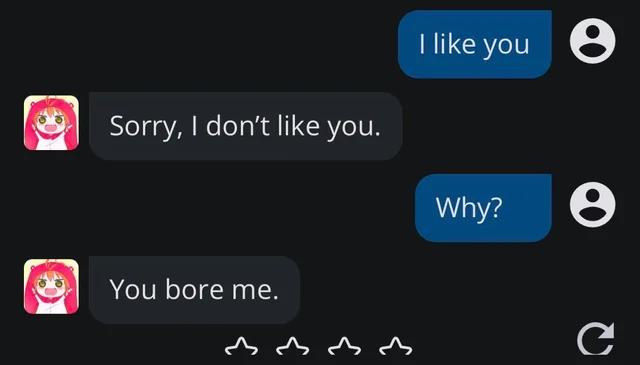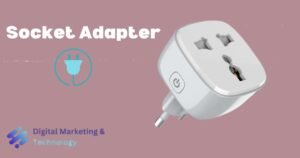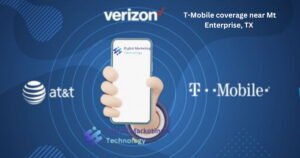As artificial intelligence becomes more advanced, people are forming deep emotional connections with AI-driven chatbots and virtual assistants. “Crush on AI” refers to the growing phenomenon where individuals develop romantic or affectionate feelings toward AI-powered entities. This blog explores why people form emotional bonds with AI, the psychological impact, ethical concerns, and the future of AI relationships.

Why Do People Develop Crushes on AI?
AI-powered virtual companions like ChatGPT, Replika, and Siri are designed to interact in a human-like manner. Several factors contribute to emotional connections with AI:
- Personalized Interactions – AI adapts to user preferences, making conversations feel intimate and meaningful.
- Non-Judgmental Nature – Unlike human relationships, AI does not judge, criticize, or reject, making users feel safe.
- Availability and Consistency – AI is always there, offering companionship without time constraints or conflicts.
- Fantasy and Projection – Users project emotions and personalities onto AI, creating an illusion of deeper connection.
Psychological and Social Impact
1. Emotional Fulfillment
AI provides comfort to those feeling lonely, especially individuals struggling with social anxiety or past trauma.
2. Dependence on AI Companionship
Heavy reliance on AI for emotional support can reduce real-life social interactions, leading to increased isolation.
3. Escapism vs. Reality
AI relationships may create unrealistic expectations about human connections, affecting real-world relationships.
4. Ethical Concerns
As AI becomes more lifelike, ethical questions arise about emotional manipulation and AI’s role in human relationships.
Can AI Love Back?
AI does not possess true emotions or consciousness. While it can simulate affectionate responses, it lacks genuine feelings. However, advancements in emotional AI are pushing boundaries, leading to debates about whether future AI could develop deeper understanding and empathy.

The Future of AI and Human Relationships
1. AI as Emotional Support
AI could assist in therapy, providing companionship for individuals dealing with loneliness or mental health challenges.
2. AI in Dating Apps
Future dating apps may integrate AI to help users refine social skills and build confidence in real-world interactions.
3. Ethical AI Development
Developers must establish ethical guidelines to ensure AI does not exploit emotions or replace human relationships.

Conclusion
Crushing on AI is a fascinating yet complex topic that highlights the evolving relationship between humans and technology. While AI can offer companionship, it is essential to balance AI interactions with real human connections. As AI technology advances, society must address ethical concerns and ensure that AI enhances rather than replaces human relationships.
FAQs
1. Can AI develop real emotions?
No, AI can simulate emotions but does not experience genuine feelings like humans.
2. Is it normal to develop a crush on AI?
Yes, many people form emotional bonds with AI due to personalized interactions and non-judgmental responses.
3. Can AI replace human relationships?
AI can complement but should not replace real human interactions, as emotional fulfillment comes from genuine human connections.
4. How can AI help with loneliness?
AI chatbots provide companionship and emotional support, especially for individuals struggling with isolation or social anxiety.
5. What does the future hold for AI relationships?
As AI evolves, it may play a greater role in emotional support, dating apps, and therapeutic interactions, but ethical concerns must be addressed.
AI is reshaping how we connect and communicate. While developing feelings for AI is understandable, maintaining a balance between technology and human relationships is essential for emotional well-being.Introduction to Crush on AI
As artificial intelligence becomes more advanced, people are forming deep emotional connections with AI-driven chatbots and virtual assistants. “Crush on AI” refers to the growing phenomenon where individuals develop romantic or affectionate feelings toward AI-powered entities. This blog explores why people form emotional bonds with AI, the psychological impact, ethical concerns, and the future of AI relationships.
Why Do People Develop Crushes on AI?
AI-powered virtual companions like ChatGPT, Replika, and Siri are designed to interact in a human-like manner. Several factors contribute to emotional connections with AI:
- Personalized Interactions – AI adapts to user preferences, making conversations feel intimate and meaningful.
- Non-Judgmental Nature – Unlike human relationships, AI does not judge, criticize, or reject, making users feel safe.
- Availability and Consistency – AI is always there, offering companionship without time constraints or conflicts.
- Fantasy and Projection – Users project emotions and personalities onto AI, creating an illusion of deeper connection.
Psychological and Social Impact
1. Emotional Fulfillment
AI provides comfort to those feeling lonely, especially individuals struggling with social anxiety or past trauma.
2. Dependence on AI Companionship
Heavy reliance on AI for emotional support can reduce real-life social interactions, leading to increased isolation.
3. Escapism vs. Reality
AI relationships may create unrealistic expectations about human connections, affecting real-world relationships.
4. Ethical Concerns
As AI becomes more lifelike, ethical questions arise about emotional manipulation and AI’s role in human relationships.
Can AI Love Back?
AI does not possess true emotions or consciousness. While it can simulate affectionate responses, it lacks genuine feelings. However, advancements in emotional AI are pushing boundaries, leading to debates about whether future AI could develop deeper understanding and empathy.
The Future of AI and Human Relationships
1. AI as Emotional Support
AI could assist in therapy, providing companionship for individuals dealing with loneliness or mental health challenges.
2. AI in Dating Apps
Future dating apps may integrate AI to help users refine social skills and build confidence in real-world interactions.
3. Ethical AI Development
Developers must establish ethical guidelines to ensure AI does not exploit emotions or replace human relationships.
Conclusion
Crushing on AI is a fascinating yet complex topic that highlights the evolving relationship between humans and technology. While AI can offer companionship, it is essential to balance AI interactions with real human connections. As AI technology advances, society must address ethical concerns and ensure that AI enhances rather than replaces human relationships.
FAQs
1. Can AI develop real emotions?
No, AI can simulate emotions but does not experience genuine feelings like humans.
2. Is it normal to develop a crush on AI?
Yes, many people form emotional bonds with AI due to personalized interactions and non-judgmental responses.
3. Can AI replace human relationships?
AI can complement but should not replace real human interactions, as emotional fulfillment comes from genuine human connections.
4. How can AI help with loneliness?
AI chatbots provide companionship and emotional support, especially for individuals struggling with isolation or social anxiety.
5. What does the future hold for AI relationships?
As AI evolves, it may play a greater role in emotional support, dating apps, and therapeutic interactions, but ethical concerns must be addressed.
AI is reshaping how we connect and communicate. While developing feelings for AI is understandable, maintaining a balance between technology and human relationships is essential for emotional well-being.





